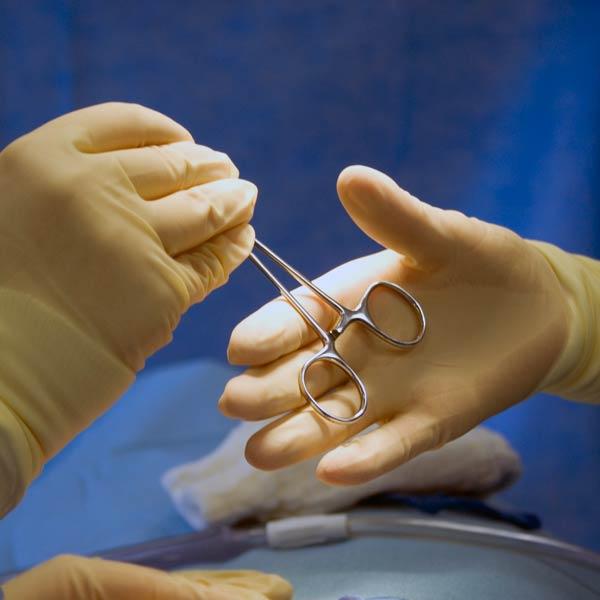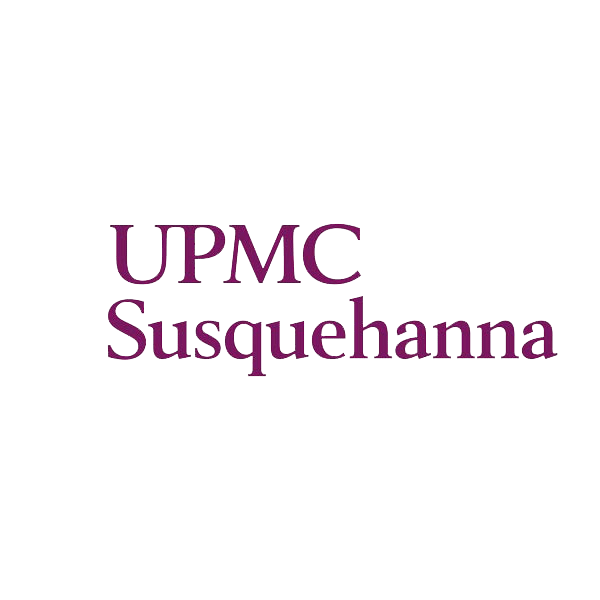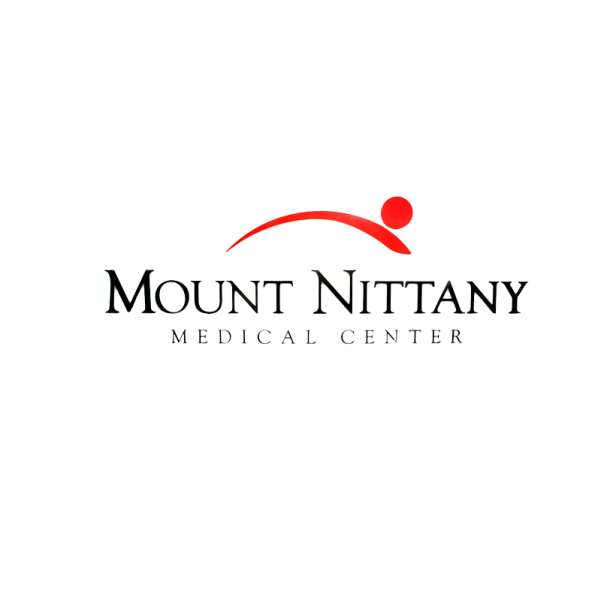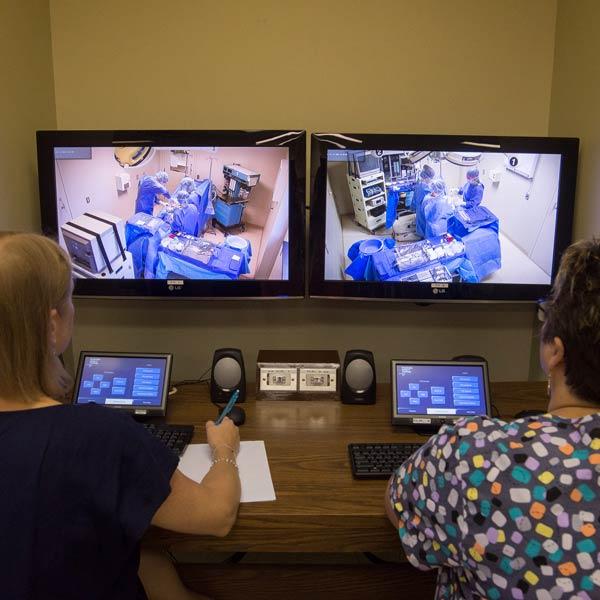Penn College Blog
What do Surgical Technologist Do?!
Surgical technology alum, Alexis Ashby, shares her passion, experiences, and even some advice for future surgical technologist on the Penn College Blog.
At Penn College, futures are made by hand. Thinking critically and solving problems, our students learn by doing. As a surgical technologist in training, you’ll gain valuable real-world experience beyond anything you can find in a textbook. You'll have 200+ hours of hands-on practice in state-of-the-art labs, with access to a wide array of specialty instrumentation and 500+ hours in O.R. clinical placements. As a surgical technology graduate, you'll become an integral part of an O.R. team, providing care to patients before, during, and after surgery.
This accredited program meets Pennsylvania’s education requirement for surgical technologists.
Acceptance in this major is based upon additional requirements beyond College admission. This major has special radiation exposure monitoring requirements.
Cohort size may vary based on clinical site availability and alignment with accreditation requirements. Students who are not selected into their desired program may be eligible for selection into another NHS program depending on seat availability. For additional information, please contact the appropriate program director.
Next steps...
You're on your way to becoming a tomorrow maker.
At Penn College, we believe your educational experience should go beyond specialized skills. Real-world ready means taking a broader approach that builds communication skills, inspires collaboration, and encourages exploration of arts, history, and science.
Specialization requires in-depth knowledge and high-level proficiency. Students learn and apply major-specific concepts, skills, and methods.
Perspectives are points of view, offering a variety of ways of understanding, interacting, and influencing the world. Students identify, explain, and utilize the approaches used by academics and professionals to study, analyze, or understand problems, and offer solutions.
Considering surgical technology? Here’s your chance to get answers to the most commonly asked questions about entering this field of study. In this video, you’ll hear their answers to questions like, “What are good traits for a surgical technologist?” and “How much do surgical technologists make?”
In just 60 seconds you'll be immersed in the Introduction to Surgical Technology and Patient Care Concepts class, gaining insight into what it's like to be a Surgical Technology major.

"I had the opportunity to go to class and learn procedures, then transition to lab and practice them. This prepared me for clinical where I was in charge of my own field and sterile technique. Having mock operating rooms to set up my cases beforehand better prepared me for the true operating room."
Rachel Carlson
Surgical Technology
Surgical technology alum, Alexis Ashby, shares her passion, experiences, and even some advice for future surgical technologist on the Penn College Blog.
Perfect your skills in mock operatories, including a dedicated laparoscopic mock operatory and labs with a wide array of general and specialty instrumentation.
Think Penn College might be a good fit for you? Make plans to visit and discover what hands-on learning is all about.
Oct 5
Undergraduate Open House
Saturday, October 59 AM - 3 PM
Nov 3
Undergraduate Open House
Sunday, November 39 AM - 3 PM
Penn College's corporate partnerships impact every step of your journey – from your first day in the classroom and labs, to career placement (oftentimes before graduation) and beyond.




The Student Society of Surgical Technologists is an organization that enjoys helping the community and the College through fundraising and service projects.
Your college experience is about more than the classroom. Join one of 65+ clubs and organizations, or create your own.
See the world via Williamsport. Take your education abroad and get hands-on experience learning about your industry on a global scale.
With 750 hours of experience in the clinical setting, you’ll be ready to hit the ground running upon graduation. In fact, with facility permission, you can complete your last clinical experience at the location where you wish to seek employment. The final semester in the program offers online coursework, giving you the flexibility to live and work in the location of your choice.

Students who have earned an associate’s degree from Penn College in surgical technology are eligible to pursue a bachelor’s degree in healthcare leadership & administration. Students currently enrolled in the surgical technology program may work with their advisor to declare this major as dual degree, taking both surgical technology courses and healthcare leadership & administration courses simultaneously. Proof of the appropriate credential or associate degree in surgical technology will be required to be eligible for graduation in the healthcare leadership & administration major.
Surgical Technology students along with others from a variety of majors at Penn College joined area law enforcement, emergency management and health care professionals in a recent simulation at UPMC Susquehanna Williamsport Regional Medical Center.
The Penn College Surgical Technology major is accredited by the Commission on Accreditation of Allied Health Education Programs (www.caahep.org) upon the recommendation of Accreditation Review Council on Education in Surgical Technology and Surgical Assisting (www.arcstsa.org); Commission on Accreditation of Allied Health Education Programs, 9355 - 113th St. N, #7709, Seminole, FL 33775, (727) 210-2350.
View Surgical Technology Accreditation & Outcomes Information
The Penn College Surgical Technology major is accredited by the Commission on Accreditation of Allied Health Education Programs (www.caahep.org) upon the recommendation of Accreditation Review Council on Education in Surgical Technology and Surgical Assisting (www.arcstsa.org); Commission on Accreditation of Allied Health Education Programs, 9355 - 113th St. N, #7709, Seminole, FL 33775, (727) 210-2350.
View Surgical Technology Accreditation & Outcomes Information
The National Certified Surgical Technologist’s (CST) 5-year pass rate chart compares the pass rate of Penn College first-time test takers (now required for graduation) to the national average. See results.
Anyone desiring entrance into this major must first gain admission to Penn College. Acceptance into this selective admission major is based upon additional requirements beyond College admission. Details are available on the Selective Admission Criteria and Process webpage.
Students are responsible for the cost of all clearances and immunizations required for clinical. All students are responsible for cost of travel and housing during clinical experiences.
Students must maintain a "C" or greater in all major courses. These courses include all SGT courses, both Introduction to Pathology and Disease courses (HTH126 & HTH127), Anatomy and Physiology (BIO 115 & BIO 125) and Microbiology (BIO 201). If a "D" or lower is earned, the course must be repeated.
Child abuse clearance, drug tests, and criminal background checks are required by agencies involved in clinical experiences. Agencies can and will bar students from their sites for infractions. By virtue of contract for Penn College students to be at clinical sites, drug testing is required for admission and students will be subject to drug testing during the program. Inability to gain clinical experiences results in inability to meet program objectives and outcomes. Inability to meet program objectives and outcomes will result in not being able to graduate. For additional clarification, students should speak to the program director or the assistant dean of Health Sciences.
Penn College complies with the federal Drug-Free Schools and Communities Act Amendments of 1989. Pursuant to this Act, all forms of marijuana, including medical marijuana, are classified as prohibited controlled substances. Additionally, alcohol, illegal drugs, and legal drugs obtained without a prescription or which may impair a student’s ability to perform his/her educational responsibilities are strictly prohibited. Students are subject to drug screening at various phases of the program. Please note that a positive drug screening for marijuana will be deemed a positive test and will result in a student being dismissed from the program, even if the student has been lawfully certified to use medical marijuana and/or possesses a valid medical marijuana identification card issued in accordance with applicable state law.
Graduates of the SG major will be eligible to transfer into the College's Applied Health Studies or the Applied Management bachelor’s degree major. In-program students can enter the Applied Health Studies major with permission of the program director and Applied Health Studies department head before graduation.
International health credentials/licensure, sciences courses, and most math courses will not be accepted to satisfy requirements of this major. Please see additional information for international students applying to Health Sciences majors.
Alternative Credit refers to academic credits earned through means other than traditional college course completion, including: credit by exam, articulation, proof of competency gained in high school, work/life experience, and advanced placement.
Visit the Alternative Credit Options page for requirements and procedures and for information on credit through Advanced Placement.
Students accepted into the Surgical Technology major will incur expenses for uniforms, malpractice insurance, clearances and certifications, etc. See the complete list.
Some items are available for purchase through The College Store.
Program Review Executive Summary: Surgical Technology
Students must meet Essential Functions for the Surgical Technologists established by the Surgical Technology Program, as well as health and safety requirements including, but not limited to, immunizations (MMR, hepatitis B, varicella, tetanus, diphtheria, pertussis, annual influenza vaccination, PPD), medical examination, 10 panel drug screen, CPR certification, and background clearances as established by clinical affiliation agreements.
Radiation Exposure Monitoring
Students enrolling in the surgical technology program at Pennsylvania College of Technology will enter a medical field with routine use of actual radiation. Students will be required to wear a radiation dosimeter badge to monitor the exposure to radiation.
The surgical technology program at Pennsylvania College of Technology meets the state education requirements for the national certification examination provided by the National Board of Surgical Technology and Surgical Assisting and also meets the education requirements for the National Center for Competency, Tech in Surgery credential. As such, the program meets requirements for certification in Pennsylvania and most states. However, the College has not officially determined if the program meets the state education requirements in any other state, U.S. Territory, or the District of Columbia. Students intending to seek employment in a state other than Pennsylvania are asked to contact the program office so that we can help you determine whether our program meets the requirements of that state.
Penn College graduates are in high demand. Employer participation at the Career Fair is proof. Attracting 400+ organizations, this popular event is hosted twice per year and introduces students to all types of businesses from startups to Fortune 500 companies.